
 My interest in the similarities between Australian and Canadian English-language fiction now extends for more than two decades. For me, last year was a particularly good year for reading Australian books, which caused that interest to bubble to the top of the brew recently — so I thought exploring the “why” and providing some examples might be useful to visitors here.
My interest in the similarities between Australian and Canadian English-language fiction now extends for more than two decades. For me, last year was a particularly good year for reading Australian books, which caused that interest to bubble to the top of the brew recently — so I thought exploring the “why” and providing some examples might be useful to visitors here.
Canberra and Ottawa may be 10,000 miles apart (the actual number is 9,997.86) but the two nations have had something in common ever since Captain James Cook mapped their Pacific Coasts on his voyages in the late 18th century. Both were colonized by the British — while it is true that Australia started as a penal colony, there is a good argument that the dispossessed, misfits and remittance men who settled Canada were just a step ahead of being candidates for exportation to Australia.
Both nations came of age on comparable tracks. As Dominions, both sent troops to fight in the Great War (mainly as fodder, frankly) — significantly in both cases, the decision to join that war was made in London because neither nation yet had control of its own foreign policy. That final achievement of independence came for both with the Statute of Westminster in 1931.
In their early history, Australia and Canada were equally cruel in their treatment of the indigenous peoples on their land — the importation of diseases like smallpox was followed by the introduction of the devastating effects of alcohol and arms. Both had “mission” schools designed to undermine, even destroy, native cultures — the experience described in Porcupines and China Dolls (see the earlier post) in Canada has its counterpart in Australia’s Stolen Generations, an evocative phrase if ever there was one. The exploitative environment and mine in Carpentaria have a host of parallels in native communities across Canada.
Both are now prosperous First World nations, albeit with small populations (Canada’s 31 million versus Australia’s 21 million). Both are proud members of the Group of 8, although the debate would be long and hard about which ranks seventh and which eighth in that group.
Both also have a very large land mass where that population is settled. Perhaps the factor that most influences the similarities in fiction (beyond the shared history) is that the small population of both countries is centred on the coast or border, leaving an immense frontier that to this day is wilderness. It may be desert in Australia and forest and tundra in Canada — it is an ideal setting for a novelist. Margaret Atwood’s initial critical work on Canadian fiction was titled Survival; many of its observations are equally applicable to Australian works.
The two previous posts on this blog — Porcupines and China Dolls by Robert Arthur Alexie and
Carpentaria by Alexis Wright — explore in some depth two somewhat comparable stories of indigenous people in Canada and Australia in the current world. Here are thumbnail descriptions of a few other pairs that I have found comparable — if you have read and liked one, I think you would find the other equally interesting:

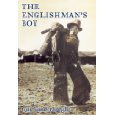 The Secret River, by Kate Grenville
The Secret River, by Kate Grenville
The Englishman’s Boy, by Guy Vanderhaege
Both these novels concern the early English exploration and settlement of the two nations. In Grenville’s book, the Thornhill’s are a convict family, sent to Sydney. They follow up on rumors of the availability of land on the Hawkesbury River — disaster ensues. The Englishman’s Boy is somewhat different in that it has both an “exploration” story of an English big game hunter in Western North America (one of those remittance men) told in parallel with a Hollywood setting 50 years later where a producer wants to make a movie of the story. For an excellent recent review of this book (from a neutral British source), check out Max at Pechorins Journal. I am not a big fan of traditional historical novels; both these books impressed me. Vanderhaege’s The Last Crossing and Grenville’s new book, The Lieutenant (which I have not yet read) promise a similar comparison.
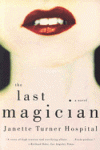
 The Last Magician, by Janette Turner Hospital
The Last Magician, by Janette Turner Hospital
Two Strand River, by Keith Maillard
This comparison is a bit of a cheat since both these books are out of print, but used copies do show up online — I am including them because it is the first direct comparison between Canadian and Australian novels that I remember. Maillard’s book is one of my all time favorites; he describes it as an adult fairy tale about “a boy who should have been a girl and a girl who should have been a boy.” The stunning conclusion takes this story into the Shaman world of the Pacific Coast nations of British Columbia. I was struck by the similarity with Turner Hospital’s book (which she actually wrote while living in Canada, but I’m not going to argue that she is Canadian) when it was first published in 1992. The Last Magician also begins with some offbeat sexuality — this time a “posh” girl who has turned to prostitution and then expands into a paranormal world, just as Two Strand River does. If you can find them, both are excellent reads.
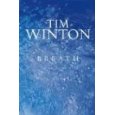
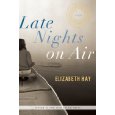 Breath, by Tim Winton
Breath, by Tim Winton
Late Nights on Air, by Elizabeth Hay
The idea of escape from the urban areas into communities in the modern frontier is the common thread to these two novels. While Breath is a coming-of-age novel, it is set on the rugged coast of Western Australia where two would-be young surfers come under the influence of the guru, Sando, and his woman, a couple who are escaping from the “civilized” world in search of a less alienating, but equally risky, community. Hay’s book centres on a cast of characters who also have rejected urban Canada — in their case, the new community centres on the Yellowknife CBC station. Their embrace of the frontier climaxes in an attempt to retrace the route of the English explorer, John Hornby, whose party starved to death in the Arctic barrens in 1927. Both Winton and Hay have impressive backlists and stand in the front rank of authors writing in English — these two books are excellent examples of their work.
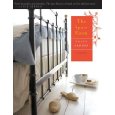
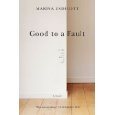 The Spare Room, by Helen Garner
The Spare Room, by Helen Garner
Good to a Fault, by Marina Endicott
I didn’t particularly like either of these books for the same reason (too sentimental), but a lot of readers whom I respect raved about both — so I suspect others might come to a very different conclusion than I did. In Endicott’s book, Clara Purdy, a childless, middle-age woman, has a car crash that changes her life. The female passenger in the car that she hit is hospitalized for an extended period and Purdy looks after her children, discovering her own over-powering maternal instincts in the process. In The Spare Room, Helen offers to house and help her friend Nicola who has come to Melbourne for some questionable treatment of an apparently terminal cancer. Relations between the two degenerate under the tension — like Good to a Fault it is an exploration of how deeper feelings get aroused, create tension and are eventually resolved. For an e-interview with the author and a link to a more positive review of The Spare Room, check out dovegreyreader here.
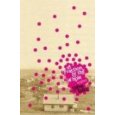
 A Fraction of the Whole, by Steve Toltz
A Fraction of the Whole, by Steve Toltz
Fall on Your Knees, by Ann-Marie MacDonald
Just as escape from the city to the frontier is a common theme, the notion of escaping the country to a nearby one shows up in both Canadian and Australian fiction. In MacDonald’s novel, the author explores the abusive childhood of Frances Piper in a coal-mining community on Cape Breton. She eventually escapes to New York — but is drawn back home in a harrowing conclusion to this far-reaching novel. In Toltz’s novel, Jasper Dean faces an equally challenging and disruptive childhood, leading to a story that expands beyond Australia to Paris and the jungles of Thailand. While these novels were first published more than a decade apart (1996 and 2008), they both represent examples of what I call “the widescreen novel” as it is being produced out here in the former colonies.
Those comparisons represent only the tip of the iceberg when it comes to similarities in Australian and Canadian fiction (you’ll note the absence of some of the most famous names like Carey, Atwood and Munro). And I acknowledge that I have left New Zealand and Canada’s French language literature off my map. Other comparisons would certainly be welcome in the comments — it is an area that I am certainly interested in pursuing further.
There is one significant barrier to a serious, timely exploration of this project, however. While the sun may have set on the British Empire decades ago, remnants remain — especially in the book publishing world. An Australian who wants to read Canadian fiction (and vice versa) has to choose between the option of punishing shipping charges or patiently waiting until a UK publisher makes a version available there and then taking advantage of the Book Depository’s free world-wide shipping (thank god for that). Just a small reminder of the Mother Country, I guess — and how boring would life be if booklovers didn’t face some challenge in acquiring volumes that they really want.
May 6, 2009 at 11:17 pm |
Wow: a great essay, and it makes me want to read almost all of those books you pair up at the end that I haven’t yet read.
One thing that’s struck me about Australia, about which I wonder if it’s true for Canada too, is that we never actually succeeded in “taming” the continent the way the USA did their land. There are still huge stretches of this country where people regularly get lost and die, and the idea of the lost child in the Australian Bush has been there in our literature from near the beginning.
LikeLike
May 6, 2009 at 11:21 pm |
JRSM: Thanks for the kind words about the essay. And I agree completely with the “taming” idea — there is simply too much land and too few people in both cases. “Lost in the bush” is certainly a Canadian theme (not just children — exploration parties, downed airplanes, you name it). And there is still a lot of bush to get lost in. I do hope some of those comparisons have put you on to worthwhile books.
LikeLike
May 7, 2009 at 12:39 am |
This is an excellent post, Kevin. Thanks for putting all of the time into this. I find this fascinating, and it brings a lot of good-looking books to my attention that I hadn’t heard of before. It also gives me a perspective with which to read them.
LikeLike
May 7, 2009 at 12:52 am |
Thinking more about what you wrote here, I have to agree too with your descriptions of the two countries’ experiences in WWI. ‘The Wars’ and ‘Generals Die in Bed’ could have easily have described the Australian as well as the Canadian experience.
LikeLike
May 7, 2009 at 1:58 am |
Trevor: Thanks and I hope you found some useful information. On the one hand, it is the product of 20 years of work. On the other, it was no work at all — I’d read all the books simply because I was interested in them and all I had to do was pull a few thoughts together. It did remind me of my days as a political reporter back in the 1970s — the best analytical pieces that I wrote were ideas that just popped into my head, stewed there for some months and only took about an hour to write when I actually started typing. One of the “stewing” ideas that has been percolating for a while is a similar comparison between the fiction of Western Canada (but east of the Rockies) and the Western U.S. — again trying to find examples from exploration to modern work. I’d leave B.C. and California out because both are so different from the Prairie and Mountain states. I’ll keep it percolating for a while.
JRSM: I’ve certainly read non-fiction comparisons between Canadian and Australian troops in WWI (courageous, good fighters, misdirected by hopeless Brit officers who had no respect at all for them), but admit I don’t know any works of Australian fiction that explore that experience. I have read The Wars, but you are ahead of me with Generals Die in Bed — heard about it but never seen a copy. If you ever come across it, you would probably find Joseph Boyden’s Three Day Road interesting — its central characters are two Cree from Moosenee. It is also book one in a project trilogy; the second, Through Black Spruce, I reviewed here earlier (it won last year’s Giller Prize).
LikeLike
May 7, 2009 at 2:28 am |
Definitely looking forward to you Western Canada / Western U.S. post. I took a class in literature of the Western U.S. about ten years ago now, and it gave me a new appreciation of my home (south-east Idaho). I remember focusing on Willa Cather (a bit farther east of me, but still considered Western). Others did Wallace Stegner, and I know you like him. I’m trying to remember some of my other favorites, but I’m afraid we drifted to California a few times for Jack London and John Steinbeck (I enjoyed both). I’ll keep trying to think of others.
LikeLike
May 7, 2009 at 4:48 am |
Thanks, Trevor — Willa Cather is on my list since I have not read anything by her. I’ll probably take a gingerly approach to McCarthy as well (like some, don’t like others) — and Fante and John Williams Butcher’s Crossing and Stoner, both of which I think are much under-appreciated. The project is likely to be some months in the future — it’s one of those things that needs a long gestation.
And I didn’t know about south-east Idaho — which part, specifically. I know a bit about the state, but mainly along the western side from Coeur d’Alene (where I did play one of my best rounds of golf ever), up to the border.
LikeLike
May 7, 2009 at 1:35 pm |
I’m ashamed to say I’ve read none of your Canadian picks Kevin, but having enjoyed all your Australian choices I will look out for them. The comparison should be interesting.
If you wanted to read a fictional account of the Australian experience of WWI I’d suggest The Middle Parts of Fortune by Frederic Manning (1929). Manning fought at the Somme in 1916 and his novel is a full, frank and very Australian account from the point of view of ordinary soldier Private Bourne.
Hemingway no less described it as:
“The finest and noblest book of men in war that I have ever read. I read it over once each year to remember how things really were so that I will never lie to myself nor to anyone else about them.”
I don’t know how easy it would be to get in Canada, but I’d certainly highly recommend it.
LikeLike
May 7, 2009 at 2:14 pm |
Many thanks for that recommendation — and Manning’s book is available at Canada’s chapters online so I will be including it in my next order. The Somme was perhaps the biggest colonial “fodder” battle of them all. It remains such a major theme in Canadian literature that it is almost impossible not to come across at least one new book involving it each year (check out Underground by June Hutton for this year’s first entry). I certainly knew Australians fought in it — I’ll quite appreciate reading about that point of view.
And if any of those Canadian titles do interest you, I think most have been published in the UK so a Book Depository approach would work. (Incidentally, for anyone who does that and likes to help out other bloggers, BD has a new affiliates program that both Trevor at themookseandthe gripes and dovegreyreader are part of — if you click on the BD logo on their sites to start your ordering, they get a small commission. Costs you nothing extra and helps those two put us in contact with more good books.)
LikeLike
May 7, 2009 at 10:46 pm |
Is this essay the start of your Master’s Thesis in Literature? It’s great.
Oh, the Spaniards brought a whole slew of diseases to the lower Americas also. And mistreated the natives also.
And, I’ve read somewhere (can’t remember for the life of me) that when the US colonies were lost in the American Revolutionary War, that England had to find another place to send its misfits, so it choose Australia.
Haven’t read anything about Canada being the dumping ground for the misfits. Did you learn this in school?
LikeLike
May 7, 2009 at 11:12 pm |
‘The Middle Parts of Fortune’ is also unusual in having two different titles (depending on where and when it was published, it was also called ‘Her Privates We’), both of which are quotes, and both of which are puns on genitals. I don’t know what you can _do_ with this information, but it’s there for you to enjoy!
LikeLike
May 7, 2009 at 11:23 pm |
Isabel: I did know the Spaniards brought pretty much the same diseases to the lower Americas, but admit I know that part of the world not very well. As for the “misfits” that settled Canada, I think that came from a particularly good high school teacher whose opinion was certainly confirmed in the fiction that I later read. Thanks for the kind words about the essay.
JRSM: I would have needed the second title to confirm the idea of a pun. Very useful knowledge for when I do read the book. Thanks.
LikeLike
May 8, 2009 at 1:54 am |
You asked where I was from in SE Idaho. To be specific, Menan. It’s a little farm town just a bit north of Idaho Falls. I went to school in Rigby, seven miles or so away. Menan’s claim to fame are the Menan Buttes. I used to move pipe for irrigation at the foot of them. A bit different from New Jersey. The Orange Mountains are a far cry from the Buttes, let alone the Tetons.
LikeLike
May 8, 2009 at 3:12 am |
Thanks — I have spent a few days in Idaho Falls so I have some idea. And Angle of Repose did acquaint me a bit with the early days of Idaho irrigation, which is not much different from Alberta irrigation which I know something about (I worked a couple of summers in lumber yards around Southern Alberta). I’ve never seen the Orange Mountains, but as some one knows the Rockies well, I’m pretty sure I would regard them as hills.
LikeLike
May 8, 2009 at 6:48 pm |
Definitely hills, Kevin. We drive through them every day, and it’s just a wind in the road. Pretty hills, though.
LikeLike
May 8, 2009 at 6:54 pm |
I have nothing against hills, which can be very pretty. People just should not call them mountains (or buttes for that matter).
LikeLike
May 10, 2009 at 3:13 am |
My friend got married and moved to Glasgow. He is learning a lot of history. He told me that many Scottish people were sent to Canada after their lease on the tenant farms were voided.
It’s like they didn’t have a choice in moving.
It was a great coicidence that we are talking about this topic. More support for your thesis.
LikeLike
May 13, 2009 at 5:20 pm |
A fascinating essay Kevin, it’s interesting to read how comparable historical experiences have led in some cases to comparable literary responses.
I thought your point on the unsettled nature of both territories particularly interesting, I suspect there’s truth to that and the continuing existence of an internal wilderness creates real differences to the US experience. The lack of taming that JRSM refers to.
Interesting stuff, it all makes the UK look rather quiet by comparison…
LikeLike
May 29, 2009 at 5:20 am |
[…] top of that, I found this interesting essay today: An Essay: Similarities in Australian and Canadian Fiction. I recognize some of the Australian books there, so I think they are pretty well-known here in […]
LikeLike
August 31, 2009 at 2:05 pm |
Your essay makes me long for another novel from Guy Vandehaeghe. I’ve read all, is it four?, of his novels, and I am hungry for more.
LikeLike
August 31, 2009 at 3:07 pm |
Tony: Me too. Yes, four novels — he also does short stories but I don’t like them as much. There is something to the vastness of his novel plots that is particularly attractive. I have a friend who knows Guy and will ask if she knows about any forthcoming book.
LikeLike
November 28, 2009 at 5:52 pm |
Many thanks for mentioning my novel Underground in this essay on Similarities in Australian and Canadian fiction. Are you interested in receiving a review copy?
June Hutton
LikeLike
November 28, 2009 at 6:59 pm |
Thanks, June. I have a copy so do not need a review one.
LikeLike
November 30, 2009 at 1:09 am |
That’s great, Kevin — then you’ll know that my protagonist, Al Fraser, also goes off to fight in the Spanish Civil War. Australian/Canadian author Gayla Reid has a novel coming out in a couple of years, also with Cormorant Books, about two Australian nurses who go to Spain during the civil war. So the trend continues . . .
LikeLike
December 29, 2009 at 3:29 am |
A fantastic post, Kevin, and plenty of food for thought here. You are so right about the similariites between us…
By coincidence I am currently reading Cat’s Eye by Margaret Atwood, one of my favourite Canadian authors, along with Robertson Davies and Timothy Findlay. Good to a Fault is on the ANZ LitLovers reading schedule this year, so it will be interesting to see the links you have suggested (tho’ Garner in general and The Spare Room in particular are not favourites of mine).
Lisa (ANZ LitLovers)
LikeLike
December 29, 2009 at 5:30 am |
Thanks, Lisa — I didn’t like The Spare Room very much either, although I can understand why some people do. I reread Robertson Davies’ Deptford Trilogy about 18 months ago and was amazed at how well it holds up — I’ve got the Cornish Trilogy in mind for a reread sometime in the future. I read both originally when they came out, so it has been a long time. Cat’a Eye is different from recent Atwood (and is supposed to feature take-offs on real Toronto people — I didn’t know that city well at the time, so that part passed me by).
My interest in Australian books continues, so if any review here brings a comparison to mind, by all means mention it in a comment. Good luck to the LitLovers with Good to a Fault — my guess is that it has more appeal to women than it did to me.
LikeLike
December 29, 2009 at 6:03 am |
I haven’t read the Deptford Trilogy yet, only the Cornish … and
*chuckle* now you’re making me feel even more doubtful about the Endicott than I was!
I would be interested to know if there are Canadians playing around with modernism or post-modernism as, for example, Aussies Brian Castro or Gerard Murnane are. (Use the category box to find their surnames on http://anzlitlovers.wordpress.com if interested – I don’t know why the link for my name here always goes to my professional blog instead of my book blog, it’s very annoying). It seems to be that this type of writing transcends borders and national histories but I’m open to correction about that because I’m still a novice at reading and interpreting these kinds of books.
Lisa
LikeLike
December 29, 2009 at 4:23 pm |
Lisa: I checked out your reviews on both those authors and can’t really find a Canadian comparison — Rawi Hage probably comes closest and I did not like either of his books very much. I also admit to a personal bias that most works that get described as “modernist or post-modernist” I tend to describe as “self-indulgent”. Shame on me.
I didn’t mean to put you off Good to a Fault. Given your profession, I think you will find an element of interest in the notion of displaced children in the book that makes it a better novel for you than for me (since I am a 61-year-old male without children).
I’ve added ANZ LitLovers to both my favorites and blogroll, so don’t worry about WordPress sending me to the wrong site.
LikeLike
December 29, 2009 at 10:20 pm |
*chuckle* You’re not much older than me, Kevin!
But my father ( a very intelligent man and so widely read you could fill a library with the books he’s read) would say the same about modernism & post-modernism, and that’s why – between you and Trevor and Tom Cunliffe in England, here online I can always find a recommendation for a birthday or Xmas book for him. It seems there is a slight gender difference in the novels that men like to read LOL.
Lisa
LikeLike
December 29, 2009 at 10:29 pm |
“A slight gender difference?” Really?
LikeLike
December 29, 2009 at 10:50 pm |
*chuckle* I should have proof-read that!
LikeLike
December 31, 2009 at 3:45 am |
[…] from Canada has written a perceptive essay about similarities between Australia and Canada, and he’s right: we do have much in common and these similarities influence preoccupations in […]
LikeLike
June 23, 2010 at 1:57 pm |
I hadn’t really thought about their similarities, but I also have minimal experience with Australian fiction. Interesting essay.
LikeLike
June 23, 2010 at 4:35 pm |
How did I miss this original discussion, Kevin?
My dad’s a bit of a WWI buff – and has visited all the battlefields in France and Belgium. I could give you a very long list of non-fiction books on the Australian experience of war (believe me, I know, having bought countless titles for birthday and xmas presents) but the fiction list is very short. Roger MacDonald’s 1915 springs to mind. I read it as a teenager and absolutely loved it, but I wonder if it wasn’t a little bit overly sentimental. I’d have to read it again to see if my love of it still remains. And, of course, there is George Johnston’s stuff, but that is mainly second world war if I remember correctly…
LikeLike
June 23, 2010 at 4:49 pm |
Kim: One that I didn’t include in this essay is Jane Urquhart’s The Stone Carvers which tells the story of three generations of carvers in an immigrant family to Canada — ending with work on the Canadian memorial at Vimy Ridge. It is a very beautiful, if slow moving, novel.
And coming back to this post reminds me that I should do a follow-up sometime soon. As Lisa has noted here and elsewhere, Australian and Canadian fiction do have much more in common than I was able to address here. Since the original proved so popular, a second essay definitely seems in order.
LikeLike
June 26, 2010 at 7:43 pm |
[…] and belated independence from British colonial heritage. It was Kevin from Canada’s essay about this last year which prompted me to scour bookshops and libraries for books from Canada […]
LikeLike
February 23, 2012 at 2:23 pm |
Great essay. I’ve been lucky enough to live in both Australia and Canada and enjoy the similarities and the differences and fabulous literature from both. Don’t have time to comment fully, but just wanted to note that Australia in NOT a G8 member (but is a valued member of the G20).
Oh, and I believe that Canada Bay in Sydney, NSW was named for the penal colony settlers who were sent there FROM Canada (Nova Scotia prison ships, maybe?) North America was definitely a penal transportation destination long before Australia.
LikeLike
February 23, 2012 at 2:33 pm |
Ella: Yoicks. It took three years for someone to point out my error in including Australia in the G8. *blush* I’ll let it stand.
I’m sure that the “remittance” men who came to Canada included a fair share of criminals, but I’ve seen nothing that said we were a destination for prisoner ships. I suspect you are right that a ship or two was dispatched from Canada, although I have not seen that in my very limited historical reading of the period.
As for the literature thrust of the post, thanks for bringing it back to light in the comments section. I’ve read a few more Australians (most notably Seven Types of Ambiguity) since and have more on my list for this year (That Deadman Dance and Five Bells when they are released here next week). After I’ve reviewed the individual books, I should put together another post that includes Canadian comparisons. I continue to believe that the two Dominion literatures have a lot in common.
LikeLike
May 9, 2012 at 9:30 pm |
A top essay, Kevin. I notice that you have included some excellent Australian authors, but have to recommend to you my favourite, David Malouf. I think you would find his book “The Great World” amazing. It is certainly one of my “top shelf” books. Also don’t miss out on Robert Drewe’s “The Shark Net” for a peek at what it was like growing up in Perth, on the west coast, in the 1950s and 1960s, a time when the city lost its innocence.
Loving your blog.
LikeLike
May 10, 2012 at 8:01 am |
Beejay: Thanks for bringing this essay up to the top of Comments again. I have read Malouf, although nothing recently — he is someone I should get back to soon. Drewe is a new name to me — I will check him out.
LikeLike